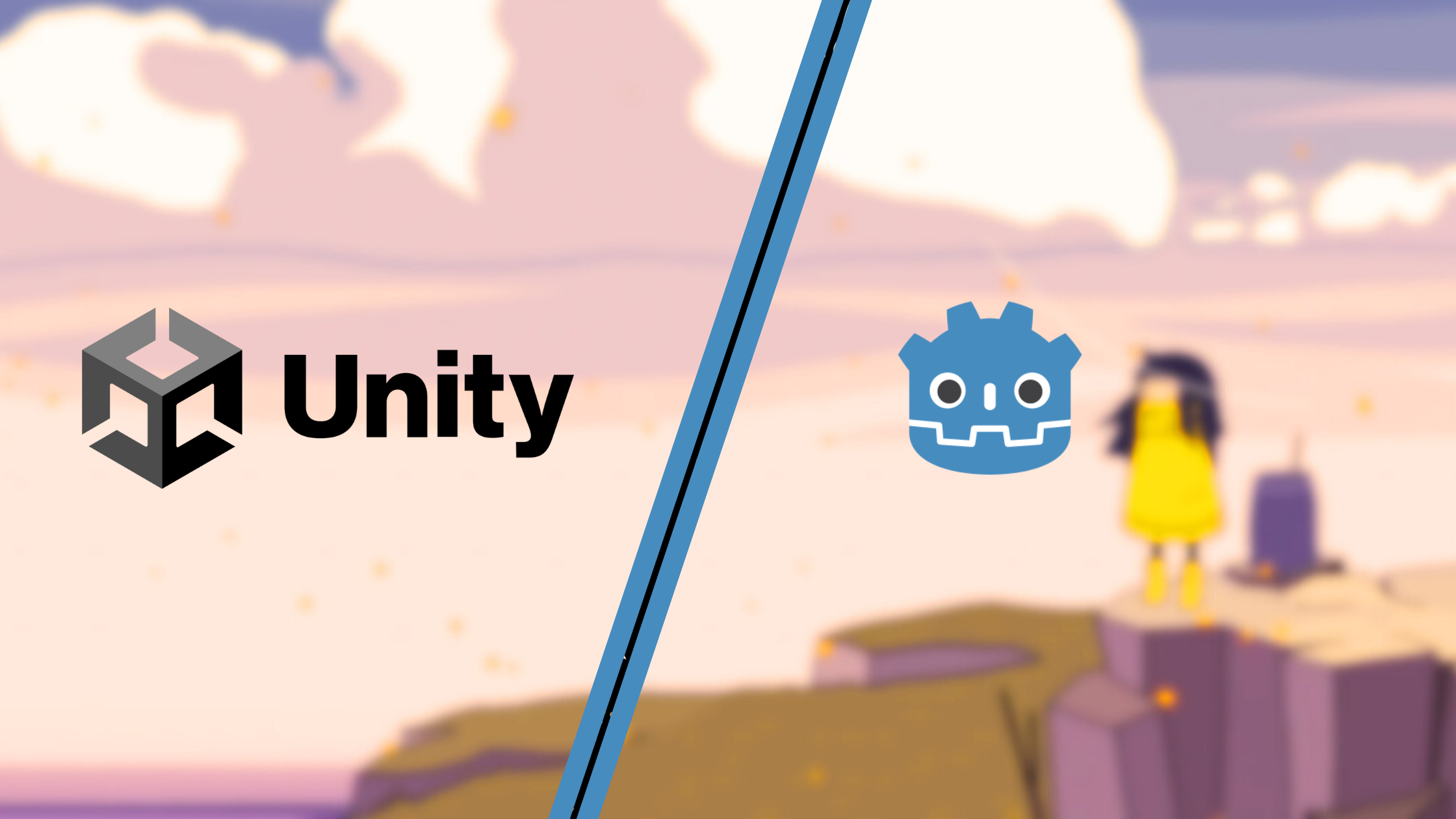Godot vs Unity: Which Engine Should You Choose for Game Development in 2025?

The age-old question that keeps indie developers awake at night: Godot or Unity? 🤔 With the gaming industry evolving rapidly and new engines emerging constantly, choosing the right tool for your next masterpiece has never been more crucial. Today, we’re diving deep into this epic showdown to help you make an informed decision.
🎯 The Current Landscape
In 2025, the game development ecosystem has transformed dramatically. While Unity remains a industry heavyweight, Godot Engine has emerged as a formidable challenger, especially after Unity’s controversial pricing changes in 2023. Let’s break down what each engine brings to the table.
💰 Cost & Licensing: The Game Changer
Godot Engine 🆓
- Completely free and open-source
- No royalties, no subscriptions, no hidden fees
- MIT license means you own your games 100%
- Perfect for indie developers and small studios
Unity 💳
- Free tier with revenue limitations
- Subscription model for professional features
- Revenue sharing for larger projects
- More expensive for commercial use
Winner: Godot takes the crown here. The financial freedom alone makes it incredibly appealing for indie developers just starting their journey.
🛠️ Ease of Use & Learning Curve
Godot’s Approach 📚
1
2
3
4
5
6
7
extends Node2D
func _ready():
print("Hello, Godot World!")
func _process(delta):
position.x += 100 * delta
- GDScript is Python-like and beginner-friendly
- Intuitive scene-node system
- Lightweight and fast to load
- Less overwhelming interface
Unity’s Ecosystem 🎓
1
2
3
4
5
6
7
8
9
10
11
12
13
14
using UnityEngine;
public class PlayerController : MonoBehaviour
{
void Start()
{
Debug.Log("Hello, Unity World!");
}
void Update()
{
transform.Translate(Vector3.right * Time.deltaTime);
}
}
- C# programming (more industry-standard)
- Component-based architecture
- Steeper learning curve initially
- More complex but powerful
Verdict: While Unity offers more industry-standard skills, Godot’s simplicity makes it incredibly accessible for newcomers without sacrificing power.
🎮 Feature Comparison Table
| Feature | Godot 4.x | Unity 2025 |
|---|---|---|
| 2D Support | ⭐⭐⭐⭐⭐ Excellent | ⭐⭐⭐⭐ Very Good |
| 3D Support | ⭐⭐⭐⭐ Great | ⭐⭐⭐⭐⭐ Excellent |
| Asset Store | ⭐⭐⭐ Growing | ⭐⭐⭐⭐⭐ Massive |
| Platform Support | ⭐⭐⭐⭐ Wide Range | ⭐⭐⭐⭐⭐ Industry Leading |
| Community | ⭐⭐⭐⭐ Active | ⭐⭐⭐⭐⭐ Huge |
| Documentation | ⭐⭐⭐⭐ Good | ⭐⭐⭐⭐⭐ Comprehensive |
🚀 Performance & Technical Capabilities
Godot’s Strengths ⚡
- Extremely lightweight (< 40MB download)
- Fast compilation and iteration
- Excellent 2D renderer
- Improving 3D capabilities with Vulkan support
- Built-in scripting language optimized for game development
Unity’s Power 💪
- Industry-proven 3D rendering pipeline
- Advanced graphics features (HDRP, URP)
- Mature optimization tools
- Better support for large-scale projects
- Extensive platform optimization
🎨 Where Each Engine Shines
Choose Godot When: ✨
- Creating 2D games (platformers, RPGs, puzzle games)
- You’re an indie developer or small team
- Budget constraints are a concern
- You want complete ownership of your project
- Learning game development for the first time
- Creating mobile games with simpler graphics
Choose Unity When: 🏆
- Developing complex 3D games
- Working on commercial projects with larger teams
- Need extensive third-party asset integration
- Targeting multiple platforms extensively
- Require advanced graphics and rendering features
- Building VR/AR applications
🌟 Success Stories
Godot Gems 💎
- Sonic Colors: Ultimate (mobile version)
- The Interactive Adventures of Dog Mendonça and Pizzaboy
- Cruelty Squad - Cult indie hit
- Cassette Beasts - Pokemon-like RPG
Unity Legends 🏅
- Hearthstone
- Cuphead
- Ori and the Blind Forest
- Cities: Skylines
🔮 The Future Outlook
Godot Engine is experiencing explosive growth:
- Massive funding increase after Unity’s pricing controversy
- Active development with frequent updates
- Growing industry adoption
- Expanding 3D capabilities
The engine’s open-source nature means it’s constantly evolving based on community needs, making it increasingly competitive with proprietary solutions.
🤝 Community & Support
Both engines boast vibrant communities, but they differ in character:
- Godot: Passionate, helpful, open-source minded community
- Unity: Larger, more commercial-focused, extensive tutorials and resources
💡 Our Honest Take
Here’s the truth: both engines have their place in game development. However, if you’re reading this on GodotAwesome, you probably already know where our heart lies! 😉
Godot’s trajectory is undeniably exciting. While it may lack some of Unity’s advanced 3D features and massive asset store, its simplicity, cost-effectiveness, and rapid development make it an increasingly compelling choice for indie developers.
The engine’s limitations in complex 3D rendering and smaller ecosystem are real, but they’re shrinking rapidly with each update. For most indie projects, especially 2D games, Godot offers everything you need and more.
🎯 Action Steps
Ready to make your choice? Here’s what to do:
- Download both engines and try the tutorials
- Prototype your game idea in both (give each a week)
- Consider your project scope and team size
- Evaluate your budget and long-term goals
- Join the communities and ask questions
📚 Resources to Get Started
What’s your take on the Godot vs Unity debate? Share your experiences in the comments below, and don’t forget to follow GodotAwesome for more insightful comparisons and tutorials! 🚀
Remember: The best engine is the one that helps you finish your game. Whether that’s Godot, Unity, or something else entirely, the most important step is to start creating! ✨
